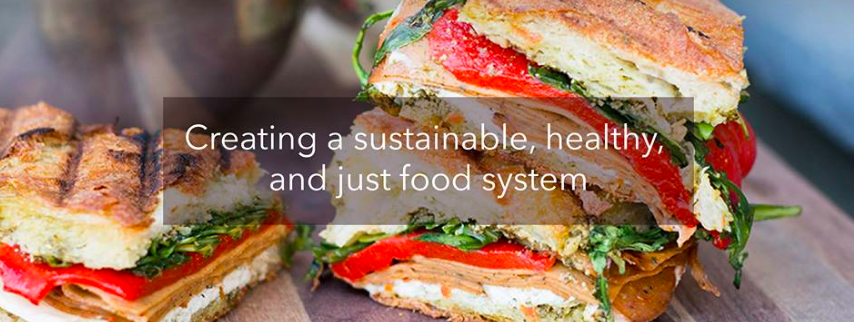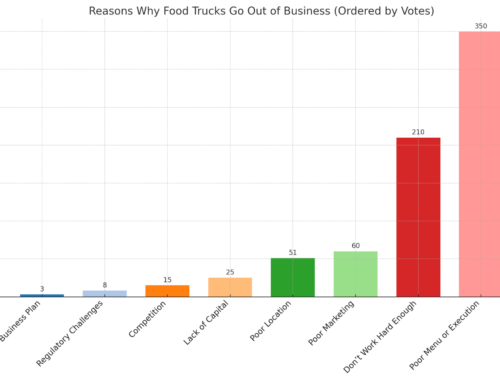Hello! Who are you and what food-based non-profit do you work for?
My name is Matt Ball, and I work for The Good Food Institute. GFI is a global nonprofit building a sustainable, healthy, and just food system. Our scientists, entrepreneurs, lawyers, and policy experts are harnessing the power of food innovation and markets to accelerate the transition of the world’s food system to animal-free meat, eggs, and dairy.
Since our founding in 2016, we’ve grown to a team of about 80 people around the world, including in Asia-Pacific, Brazil, the EU, India, and Israel. We do everything from connecting people to form commercial companies to lobbying on behalf of the plant-based and cultivated meat industries at the state and national level.
What are some of the organizations you’ve help transition to animal-free meat?
To take one example, consider the field of cultivated meat – that is, actual animal meat grown outside an animal. When GFI was being formed, not a single cultivated meat company had been announced. Now, there are over two dozen all around the world.
Or consider another example – our Good Food Conference. This past September’s had nearly 900 spots available, and sold out weeks in advance. Thousands of people watch the livestream and YouTube videos of the different panels.
Many more people read about the conference in various media stories, especially about the big announcements companies like Kroger made at the conference.
Here’s a sample of the media coverage from Jerry Hagstrom, who has been coverage agriculture for decades: “The Good Food Conference, a meeting of more than 800 plant-based and cell-based protein entrepreneurs, scientists, investors, and marketers, was the most upbeat, joyful, and youthful American agriculture gathering in years.” National Journal, 9.12.19
What’s your backstory and how did you come up with the idea?
The Good Food Institute was founded by people who are very concerned about the many harms caused by current meat production, specifically: environmental degradation (including climate change), global hunger, cruelty to animals, and damages to public health.
For many decades, a wide variety of organizations have argued and pleaded for people to eat less meat. However, per-capita meat consumption has never been higher in the United States or in the world. According to the United Nations, meat production is expected to increase by more than 50% by the year 2050.

The idea behind GFI is simple: Give people the meat the want, but produce it in ways that don’t have the many downsides of current industrial animal agriculture. But instead of starting a specific company to manufacture plant-based or cultivated meat, GFI exists to advance every field bringing about an animal-free food system.
One example of what GFI does involves basic research. The companies already in the animal-free meat, egg, and dairy fields face a variety of challenges in creating optimal products for the current market. Each of their scientific advances is proprietary. Everyone who wants to start another company or create an improved product has to do all this research all over again.
This is why GFI has a competitive grants program – to fund open-access research. GFI’s Science and Technology team has the expertise to understand what research is most important, as well as evaluate proposals from scientists and engineers around the world. We have funded millions of dollars in plant-based and cultivated meat research already, and will continue doing so.
What ways are you helping to accelerate the transition to plant-based meats?

GFI has set up a number of structures to help interested people from around the world meet each other, ask questions, and gather information. For example, we have a monthly ideas forum, regular science and technology “office hours,” and our annual conference. We also connect new companies to venture capital.
Finally, we provide technical assistance to help companies fill in gaps in their current knowledge base and get up to speed quicker. This includes offering open-access information to everyone, as well as funding new research every year.
Related Reading: How I Started a Vegan Chocolate Bar Company with a Powerful Mission
For example, here is the feedback from Brian Spears (quoted here). Brian is the co-founder of a cultivated meat company that is currently focused on sausage:
“New Age Meats is a GFI success story. We met through the GFIdeas forum, and GFI has helped us along the way. We’re making clean meat using automated cell culture and rapid R&D, and GFI’s expertise and open-access resources have been invaluable in developing both our product and company.”
Since launch, what has worked to share the message about plant-based meats?
There are many avenues we’ve pursued to promote the fields of animal-free meat, eggs, and dairy, including, as mentioned, funding scientific research and our Good Food Conference. Another area has been our Corporate Engagement team working with companies around the world to help them increase their offerings of plant-based options.
One of our more public-facing programs has been our Good Food Scorecard (goodfoodscorecard.org), where we evaluate the Nation’s Restaurant News’ (nrn.com) top 100 restaurant chains in the United States on the breadth and depth of their plant-based menu options and how they promote them. When we are talking with the restaurant chains for the scorecard, we emphasize some of the many reasons to offer more plant-based options:
- 54% of US consumers would like to eat more plant-based foods.
- 50% of Millennials eat meat alternatives at least a few times per week.
- “Vegan” is now on 11% of U.S. menus.
- U.S. retail sales of plant-based meat grew 23% 2017-18, reaching over $760MM.
And as we update our scorecard, we promote the top chains and the big movers with our contacts in the media, helping these chains get more publicity for their offerings (e.g., this story in Food Navigator).
How are you doing today and what does the future look like?
Things are going amazingly, shockingly well. It seems like every other week, there is something that would have been the biggest news of the year if it happened in 2018.
At the start of 2019, Carl’s Jr. advertised their new plant-based burger during the Super Bowl. HUGE! But that was not the biggest news of the year. The Impossible Whopper is now at every Burger King in the United States, and Beyond Meat’s nuggets and wings debuted at a KFC outside of Atlanta – and sold out in just a few hours.

And it isn’t just startups like Impossible Foods and Beyond Meat. The world’s four largest meat companies – JBS, Tyson, Cargill, and Smithfield – either launched their own plant-based meat or purchased a large stake in a plant-based company. Plus, Tyson and Cargill are also invested in cultivated meat companies
Just think about how shocking all this is. But there is precedent.
It wasn’t that long ago that plant-based milk was limited to a dusty corner of natural food stores and co-ops. Now, everything from oat milk to hemp milk is available everywhere, and plant-based milk is fully 13% of the retail market in the United States. Sales are continuing to grow, even as cow’s milk sales decline.
Plant-based meat is set to follow the same trajectory.
What lessons have you learned by running a non-profit?
There are several different categories of lessons we’ve learned – first about the market as a whole, as well as about running a nonprofit.
For our general mission of transforming the meat, eggs, and dairy industries, the key lesson is to keep consumers first.
The success of plant-based milk in the United States is very instructive. One simple thing changed from the dusty old days when soymilk was a joke: plant-based milk got to the point where it was able to meet consumer needs – taste, price, and convenience. Being better for the environment, or animal-free, or having an improved nutritional profile – none of that matters if you are not meeting the consumers where they are in terms of taste, price and convenience.

But as an organization working to change the entire global food system, we have to keep in mind that America is not the world (this is an ongoing challenge, given that the majority of people at GFI are located in the United States). Taste, price, and convenience are not the key drivers everywhere. For the growing middle class in many countries in Asia, food safety is a major concern. In India, nutritional density is key. So understanding what really drives consumer choice in different regions is very important.
In terms of running a nonprofit, staying focused on our mission is the most important lesson.
GFI is made up of some incredibly smart and passionate individuals – people who care deeply about a wide variety of issues, including many related to our goal of shifting meat, egg, and dairy production to animal-free methods. It would be very easy to pursue a lot of these side topics, so maintaining focus on our core mission is a significant challenge.
What tools does your organization use?
GFI is a remote organization, with people around the world from Israel to India. Google Drive (Docs, Sheets, etc) is a key way for us to collaborate and all stay on the same page.
We use Asana for project management – again, it is a tool that allows collaboration and tracking across departments and timezones. It is also a better way of communicating and keeping track of project tasks than email.
We also use Zoom and Google Hangouts for meetings – we try to maintain some face-to-face time every week, since we all get together only once or twice a year at full team retreats.
What have been the most influential books?
GFI has a book club, where anyone can read a selected book, and then get together over Zoom to discuss the book. A few recent books on the list have been How Not to Die by Dr. Michael Greger, Less by Andrew Sean Greer, and The Ocean at the End of the Lane by Neil Gaiman.
In terms of management, there are really too many books to list. If I had to pick one, it would be Work Rules about how to find the best people and help them get the most out of their career.
In terms of the organization, GFI encourages mindfulness and deep work. For example, we start every full team meeting with a “minute of mindfulness” to allow everyone to stop what they were doing and be present in the meeting. Two really excellent books for these topics are Why Buddhism Is True by Robert Wright and The Mind Illuminated by John Yates.
In terms of podcasts, Vox’s Ezra Klein has had GFI’s executive director Bruce Friedrich on twice (most recently here). That has helped us reach a lot of people with our work. Ezra was also a moderator at both of our conferences.
Advice for food entrepreneurs in the early stage of their journey?

No matter what space you’re looking at – from starting a food truck to starting a food company – I would strongly suggest getting ahead of the curve.
If the world’s leading meat companies and the leading food conglomerates are going big into plant-based and cultivated meat, you know this is the future.
Let me leave you with a story. A few years ago, an animal advocacy think tank did a poll of U.S. consumers and found that almost half wanted to ban slaughterhouses. Think about that for a second – only a small percentage of people in the United States are actual vegetarians, yet almost half wanted to outlaw killing animals for food.
Recommended For You: How I Grew a Food Delivery Company to over 20 Million Total Deliveries in 100 Cities
A number of people in the current meat industry figured this poll couldn’t possibly be right. So researchers at Oklahoma State University recreated the questions as part of a larger consumer survey. They, too, found that 47% of consumers want to ban slaughterhouses, and 47% support banning factory farming. Fully 68% said they had discomfort with the way animals are used in the food industry.
The desire for better meat is there. We see it everywhere from Veggie Grill to Burger King. Once we can offer those 68% of people the meat they want without that discomfort, consumers will flock to it. This is the way to succeed in the food industry.




